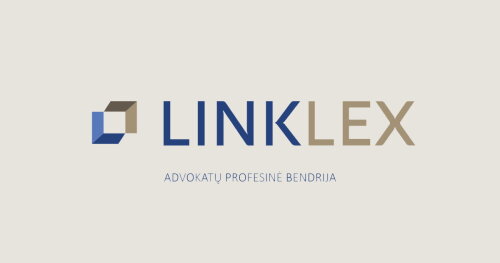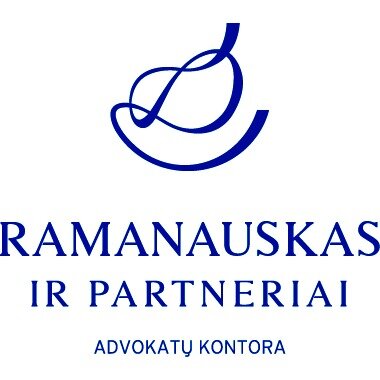Best Merger & Acquisition Lawyers in Republic of Lithuania
Share your needs with us, get contacted by law firms.
Free. Takes 2 min.
Or refine your search by selecting a city:
List of the best lawyers in Republic of Lithuania
About Merger & Acquisition Law in Republic of Lithuania
Merger & Acquisition (M&A) refers to the process of combining two or more companies through various financial transactions, such as mergers, acquisitions, consolidations, or takeovers. In the Republic of Lithuania, M&A activities are regulated by the laws and regulations set by the government. These laws are designed to ensure transparency, fairness, and legal compliance in transactions involving companies in Lithuania.
Why You May Need a Lawyer
There are many situations where individuals or companies may require the assistance of a lawyer in M&A transactions. These include negotiations with other parties, drafting and reviewing legal documents, conducting due diligence, handling regulatory compliance, and resolving any disputes that may arise during the process. A lawyer with expertise in M&A law can provide valuable guidance and help navigate the complexities of these transactions to protect your interests.
Local Laws Overview
In Lithuania, M&A transactions are governed by the Law on Companies, the Law on Competition, the Law on Accounting, and other relevant regulations. Some key aspects of the local laws that are particularly relevant to M&A in Lithuania include regulatory approval requirements, disclosure obligations, employee consultation rights, and tax implications. It is important to seek legal advice to ensure compliance with these laws and regulations throughout the M&A process.
Frequently Asked Questions
1. What types of M&A transactions are common in Lithuania?
In Lithuania, common types of M&A transactions include mergers, acquisitions, joint ventures, and strategic alliances.
2. What are the regulatory approval requirements for M&A transactions in Lithuania?
Depending on the size and nature of the transaction, regulatory approvals may be required from the Competition Council of Lithuania or other government authorities.
3. How can I protect my interests in an M&A transaction?
Engaging a lawyer with expertise in M&A law can help you draft and review legal documents, conduct due diligence, and negotiate favorable terms to protect your interests.
4. What are the tax implications of an M&A transaction in Lithuania?
Tax implications vary depending on the type of transaction and parties involved. It is recommended to consult with a tax advisor to understand the tax consequences of an M&A transaction.
5. How long does an M&A transaction typically take in Lithuania?
The duration of an M&A transaction can vary depending on the complexity of the deal, due diligence process, regulatory approvals, and negotiations involved.
6. What are the key steps involved in an M&A transaction in Lithuania?
The key steps in an M&A transaction typically include preliminary discussions, due diligence, negotiation of terms, drafting legal documents, obtaining regulatory approvals, closing the deal, and post-closing integration.
7. What are the risks associated with an M&A transaction?
Common risks in M&A transactions include regulatory hurdles, financial uncertainty, cultural differences, integration challenges, and potential disputes between parties.
8. How can a lawyer help me in negotiating an M&A deal?
A lawyer can help you negotiate favorable terms, protect your interests, and ensure legal compliance throughout the negotiation process.
9. What are some common pitfalls to avoid in an M&A transaction?
Common pitfalls to avoid in M&A transactions include inadequate due diligence, lack of clear communication, overlooking regulatory requirements, and failure to anticipate and address potential risks.
10. What are the legal consequences of a failed M&A deal in Lithuania?
If an M&A deal falls through, parties may face financial losses, reputational damage, potential litigation, and regulatory scrutiny. It is important to have legal protection and contingency plans in place to mitigate these risks.
Additional Resources
For additional resources related to M&A in Lithuania, you may consider contacting the Competition Council of Lithuania, the Lithuanian Bar Association, or engaging a reputable law firm with expertise in M&A law.
Next Steps
If you require legal assistance in an M&A transaction in Lithuania, it is recommended to consult with a qualified lawyer who specializes in M&A law. They can provide you with personalized guidance, support, and representation to ensure a smooth and successful transaction process.
Lawzana helps you find the best lawyers and law firms in Republic of Lithuania through a curated and pre-screened list of qualified legal professionals. Our platform offers rankings and detailed profiles of attorneys and law firms, allowing you to compare based on practice areas, including Merger & Acquisition, experience, and client feedback.
Each profile includes a description of the firm's areas of practice, client reviews, team members and partners, year of establishment, spoken languages, office locations, contact information, social media presence, and any published articles or resources. Most firms on our platform speak English and are experienced in both local and international legal matters.
Get a quote from top-rated law firms in Republic of Lithuania — quickly, securely, and without unnecessary hassle.
Disclaimer:
The information provided on this page is for general informational purposes only and does not constitute legal advice. While we strive to ensure the accuracy and relevance of the content, legal information may change over time, and interpretations of the law can vary. You should always consult with a qualified legal professional for advice specific to your situation.
We disclaim all liability for actions taken or not taken based on the content of this page. If you believe any information is incorrect or outdated, please contact us, and we will review and update it where appropriate.
Browse merger & acquisition law firms by city in Republic of Lithuania
Refine your search by selecting a city.














